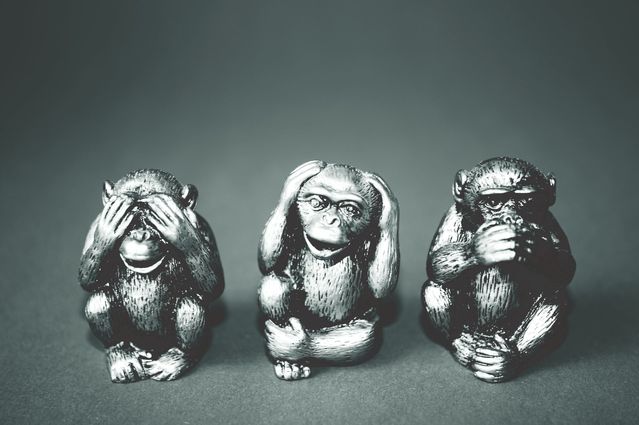
Good, bad and everywhere in-between, like it or not, we all have feelings.
When we’re feeling good, when we’re happy, contented, well-fed and aren’t worried about having to sleep out in the rain, our feelings generally aren’t on the radar. When things are just fucking awesome, it seldom occurs to us to blame our partners, coworkers, friends and relatives for our untroubled state. We wouldn’t think to dive into social media and post passive-aggressive rants, complete with appropriate memes to drive home our message, with the sole purpose to subtly thank individuals we deem responsible for our happiness, without explicitly calling them out publicly by-name, of course (you know who you are). When we’re glad, fulfilled or even unworried, it never occurs to us to question, second-guess and bring it up in therapy for deeper dissection and discussion, so we may learn to better cope with our sudden bouts with feelings of contented bliss. When we’re getting along, being productive and getting laid fairly regularly, we would be remiss to lash out with glee, bitch and moan about how great we feel or sulk around happily until someone takes the bait. “You seem a bit happy today. Is nothing wrong?”
No. It’s only when we feel like warmed-over shit that we give our feelings proper notice (unless it happens to be Thanksgiving). Yes. It’s only the unpleasant feelings we struggle with, wrestle with, dissect, mull over, ruminate about and roll around in like a cattle dog in a cow pie. Our negative feelings cause us to lose sleep, lose relationship, lose parts of ourselves that make us who we are. Often it’s the mere threat of unpleasantries that cause us to compromise our values, to be quiet when we know better, to settle for less, to underachieve and to roll-over-on our morals and personal values. I think we’d all agree that it’s generally the bad shit that gets our attention, holds onto it, fucks up our lives and the lives of everyone around us.

So what’s your point?
The point I’m making is that much of the time it doesn’t matter how we feel. While I do realize this statement would be considered akin to blasphemy to some, it’s true; and it is true regardless of how you feel about it. Because in the grand scheme of things, our feelings are never a good yardstick for reality. Hopefully reading this helps you feel relieved, knowing that you don’t really have to immediately respond to your feelings without giving them proper consideration. And understanding this gives us permission to let ourselves off the hook, just a bit. Feelings, good, bad or otherwise are often a secondary response to external stimuli. A secondary response, because our feelings about the stimuli are often not caused directly by the stimuli, but by our interpretation of the stimuli. Example: If you stick your head into a preheated oven, and linger a bit too long, you would, without a doubt experience pain. The pain would be an undeniable, direct, physical response. This is not the type of feelings I’m talking about. Feeling like a dumbass for sticking your head into a preheated oven would be a secondary response. This is the type of feelings I’m talking about. The trouble is, many times, we conveniently forget this and misdirect our feelings about our pain to being directly caused by the painful stimuli itself, i.e. “The oven made me feel like a dumbass.”

You get to choose how you feel.
The truth is, that we do feel pain. We do get hurt, but that’s okay. Pain teaches us valuable life-lessons like to be careful around hot ovens. But we only learn these lessons if we’re willing to take personal responsibility for our own shortcomings and failures. If so, pain can teach us to distance ourselves from unsafe people and to say “no” more often out of care for ourselves. But if we mislabel and misdirect our feelings, we miss out on wonderful opportunities to learn and grow. We squash our potential for growth and we destroy relationships that may ultimately be beneficial, not only to us in the long run, but to everyone close to us. Mark Manson puts it this way in his book “The Subtle Art of Not Giving a Fuck.” Feelings are just signposts. They just point to stuff that may be right or wrong and it turns out, we’re wrong a lot.
“What is objectively true about your situation is not as important as how you come to see the situation, how you choose to measure it and value it. Problems may be inevitable, but the meaning of each problem is not. We get to control what our problems mean based on how we choose to think about them, the standard by which we choose to measure them.”
I always say, if you’re feeling something negative, chances are it will boil down to some sort of fear, and from my experience, it’s usually of the unsubstantiated variety. Hope this helps.





